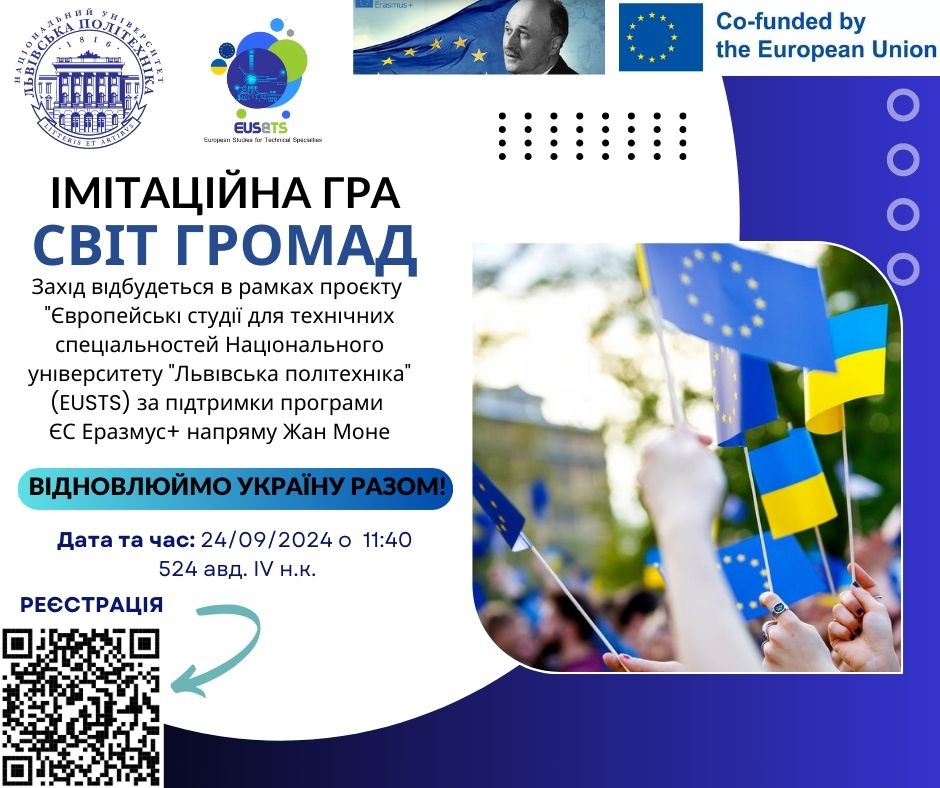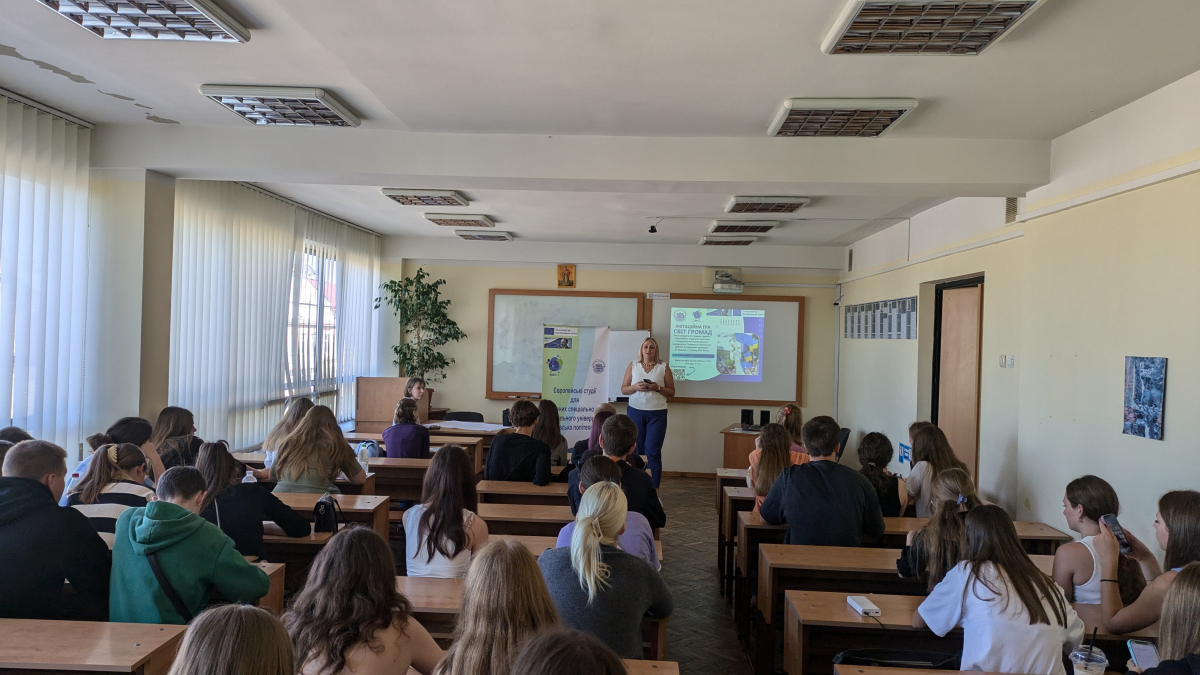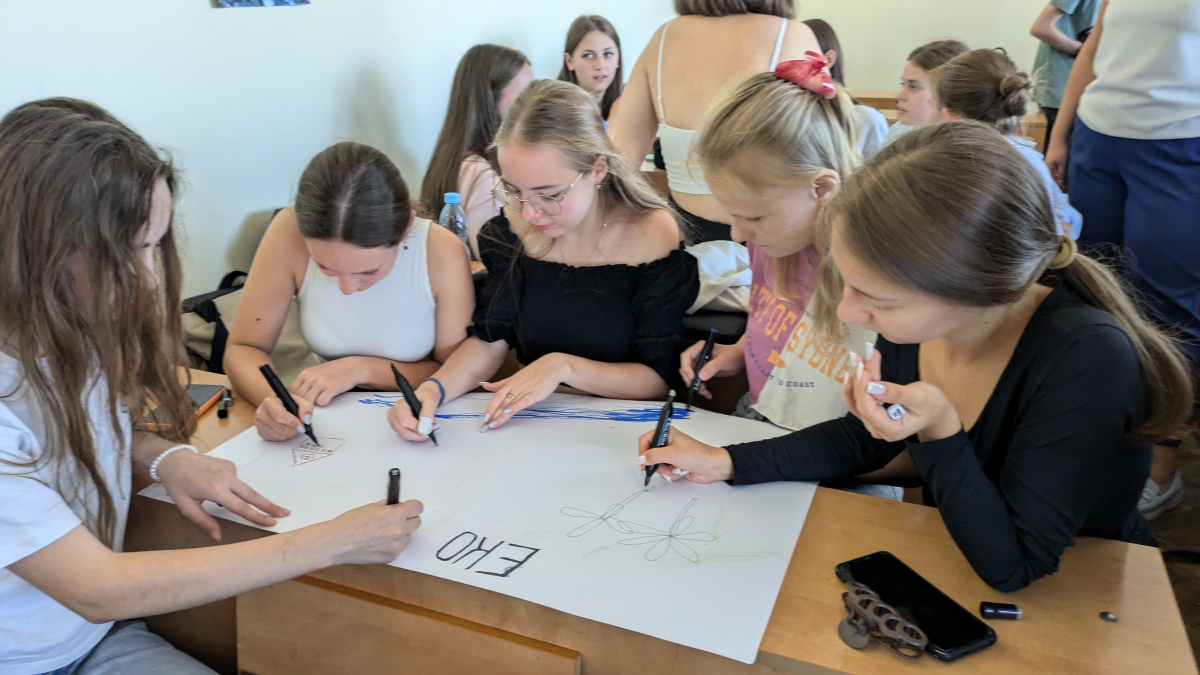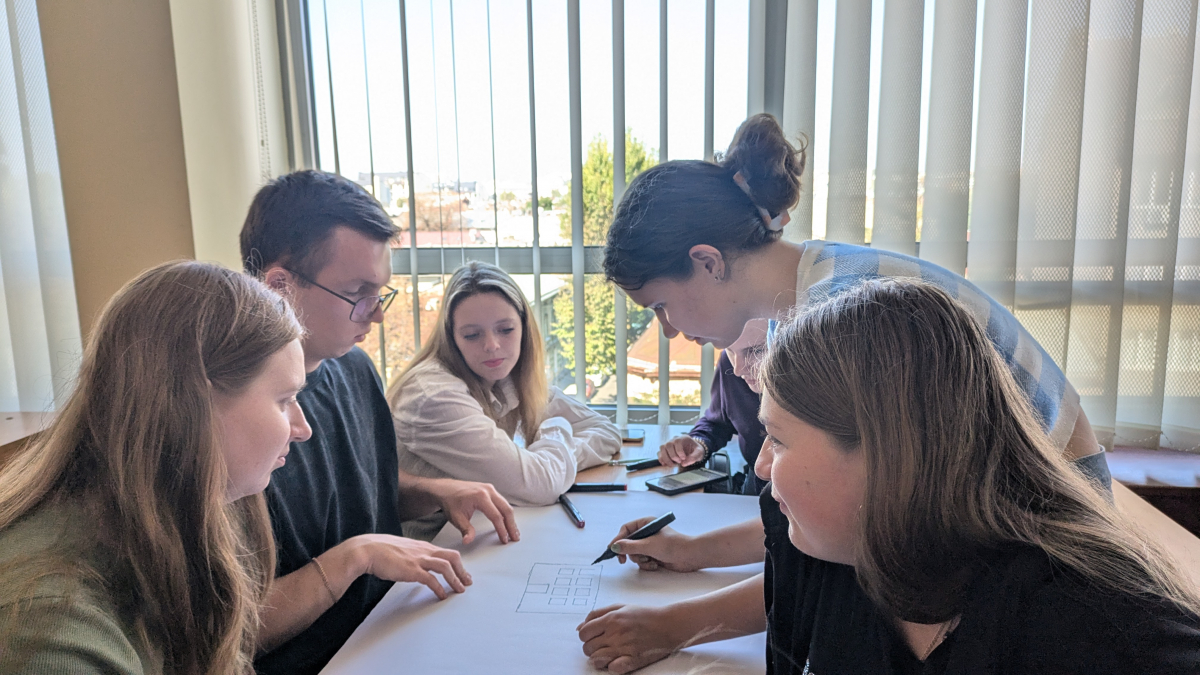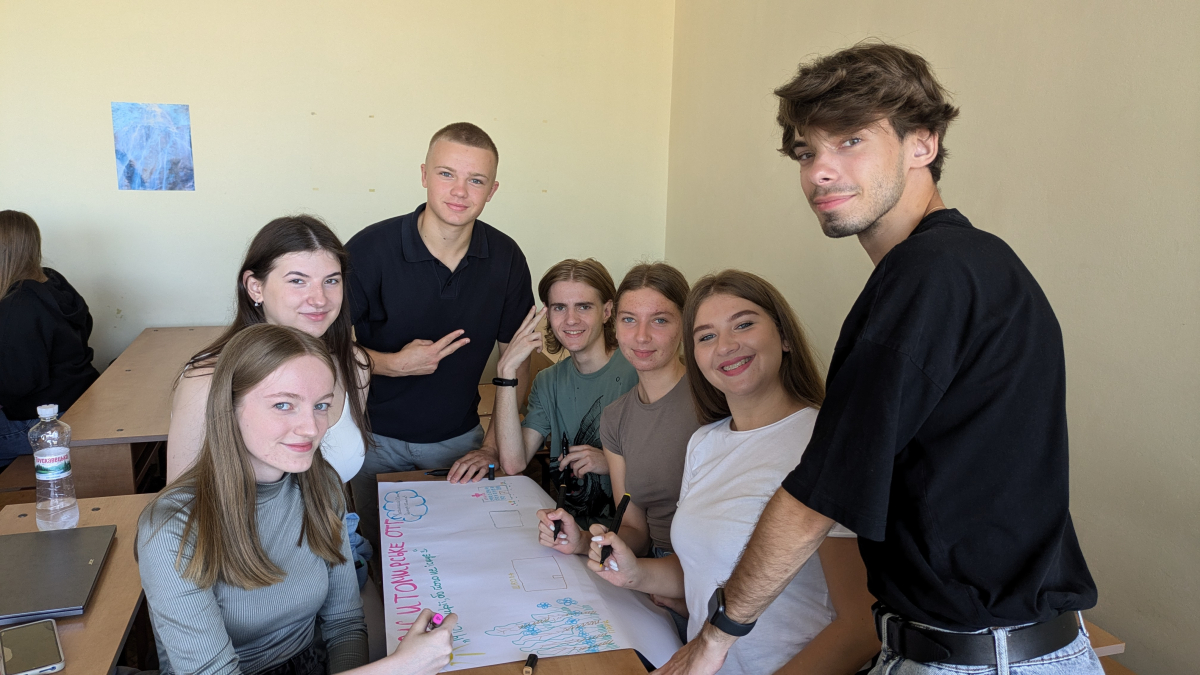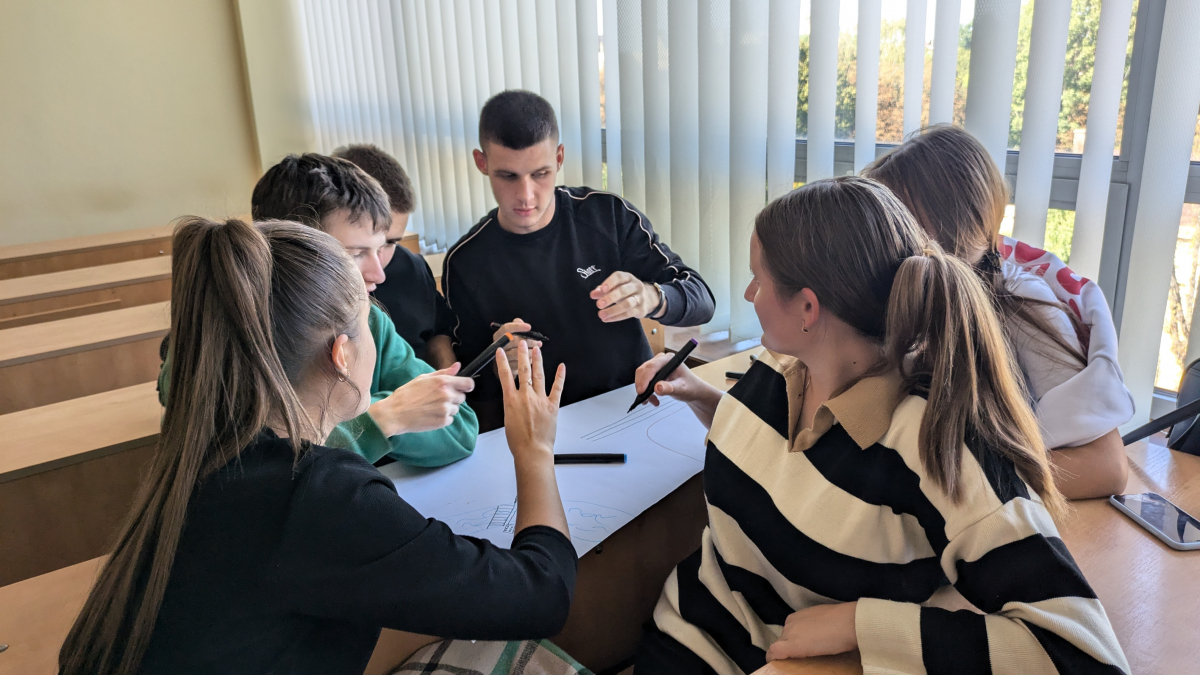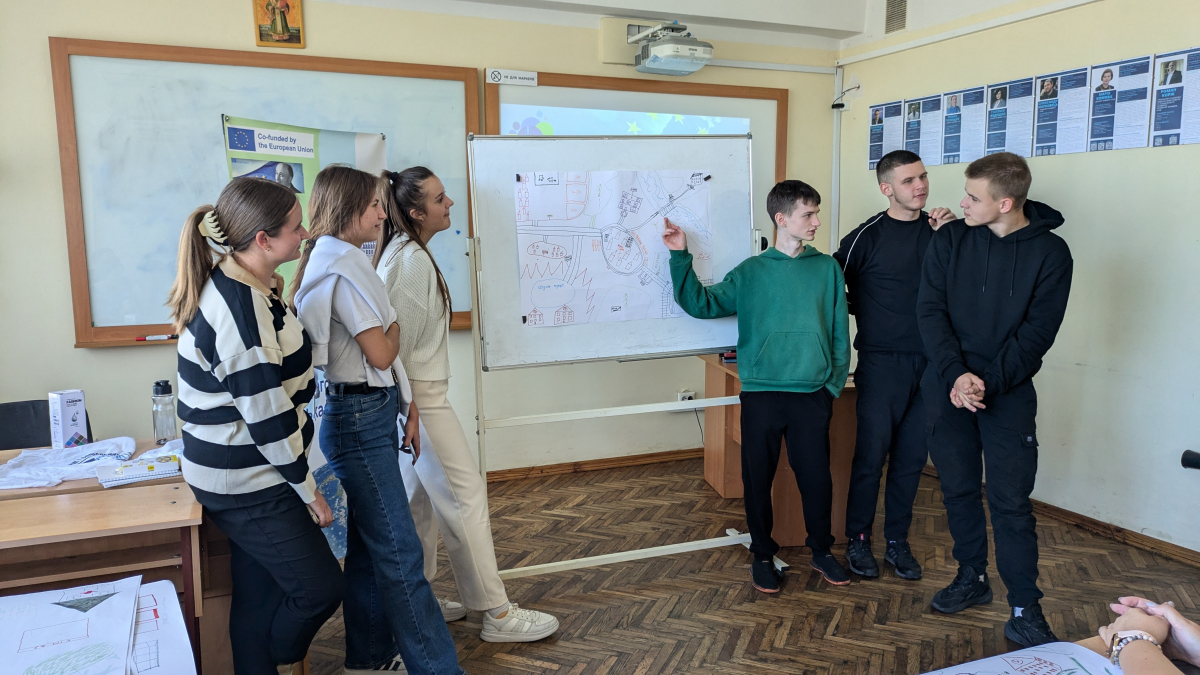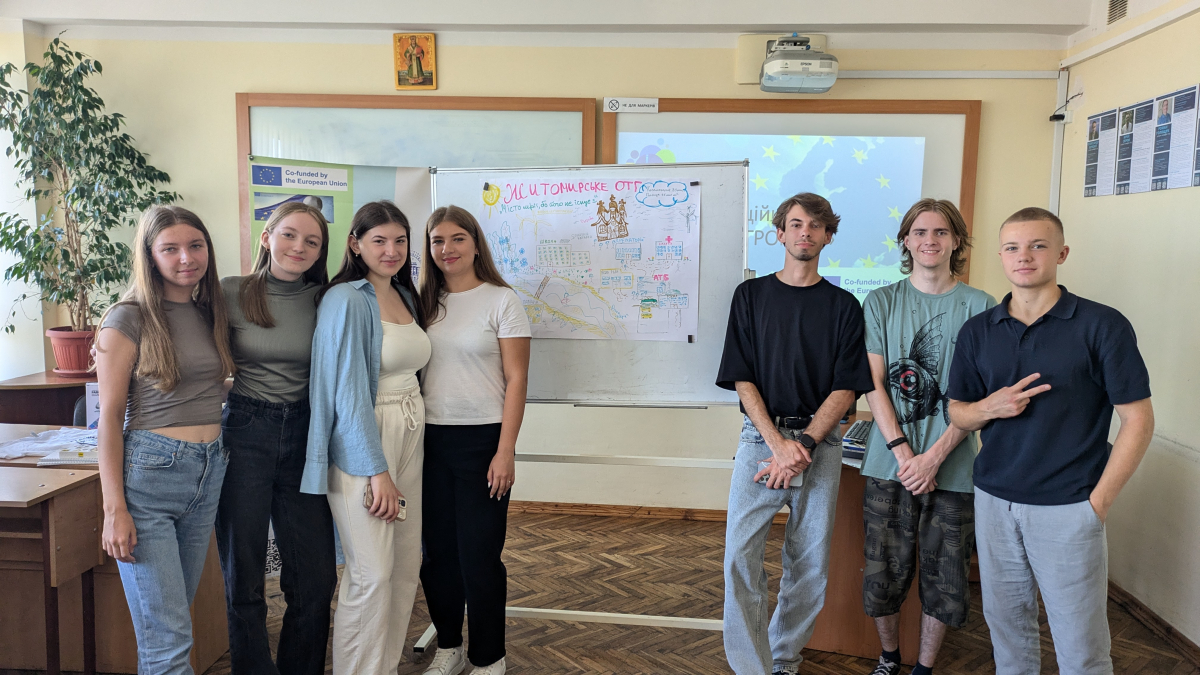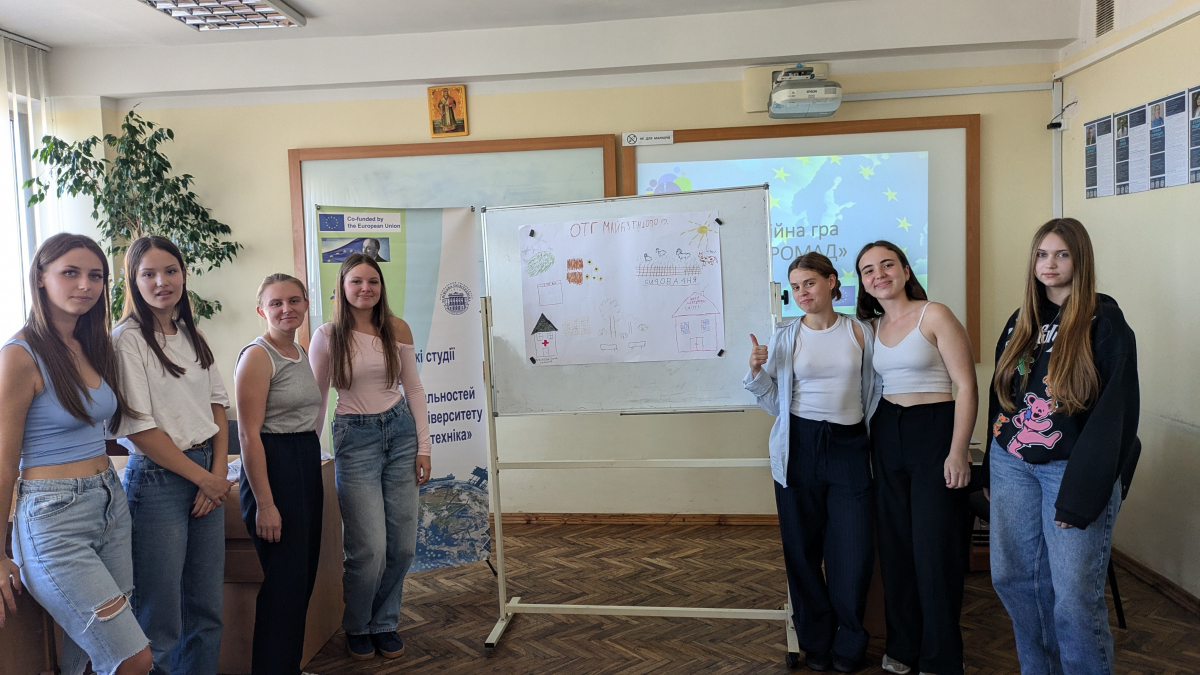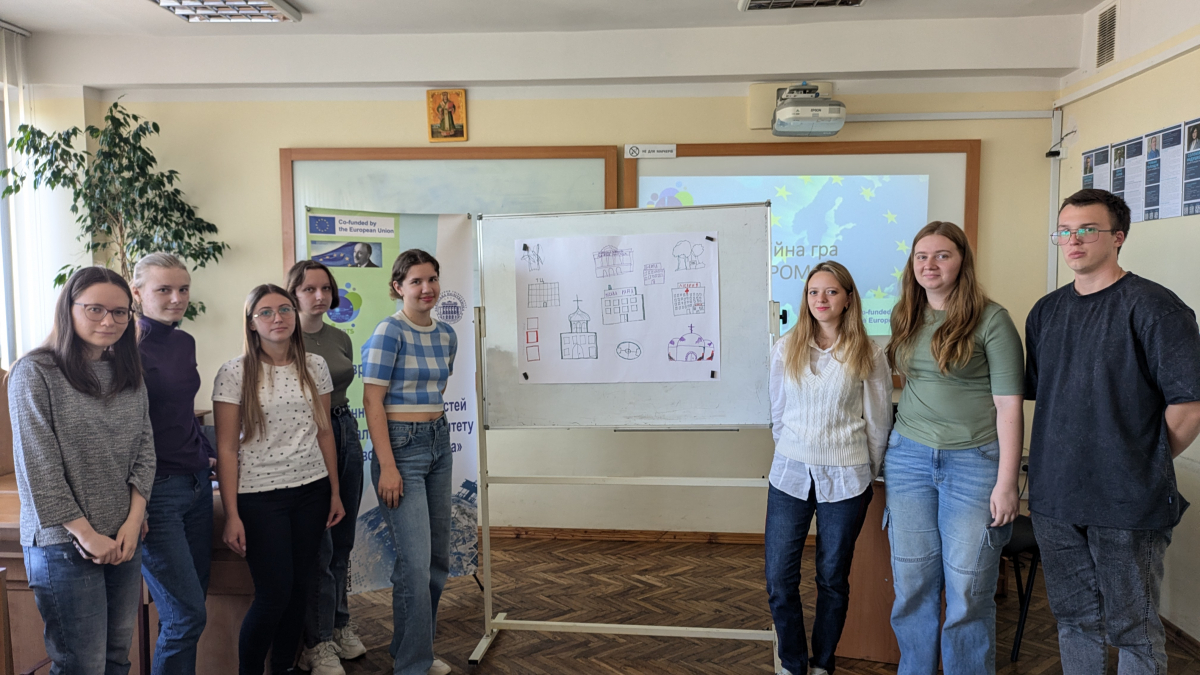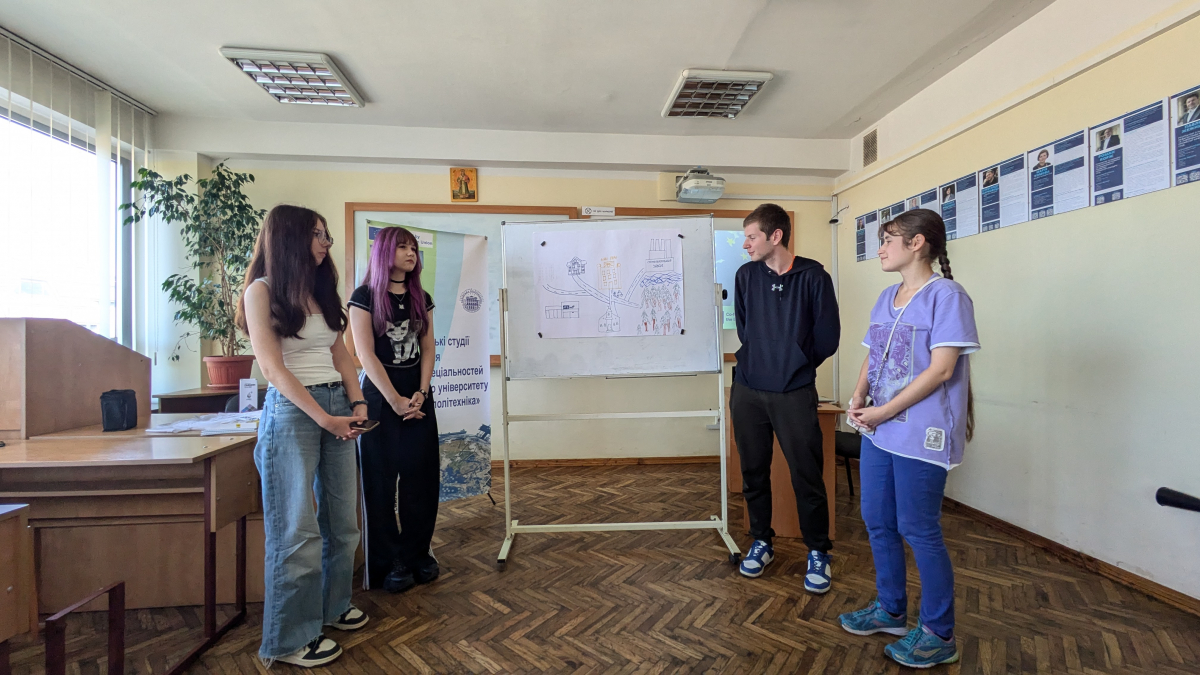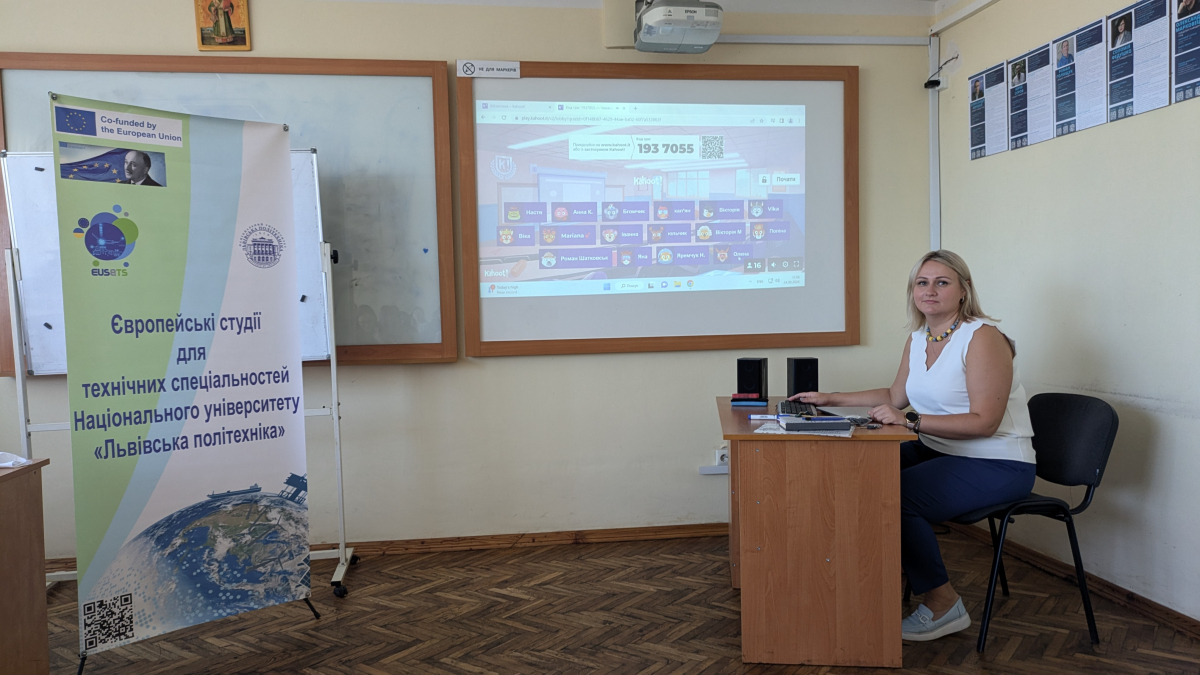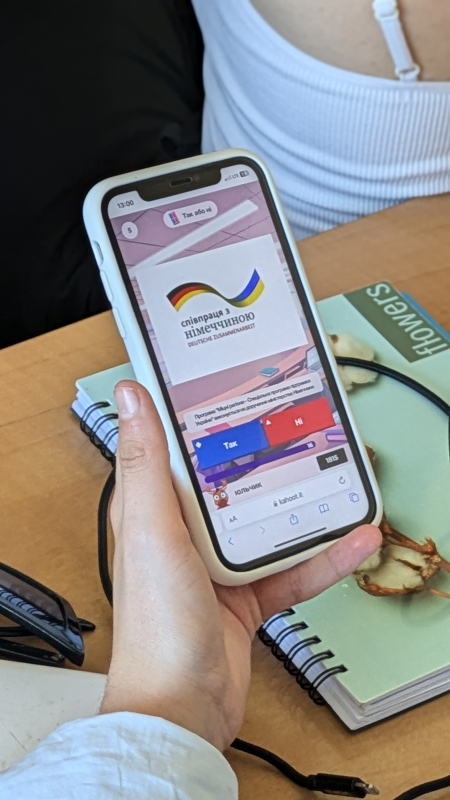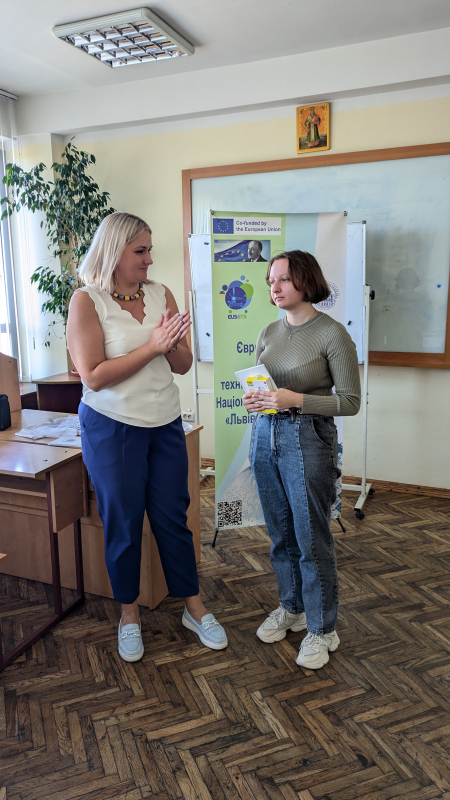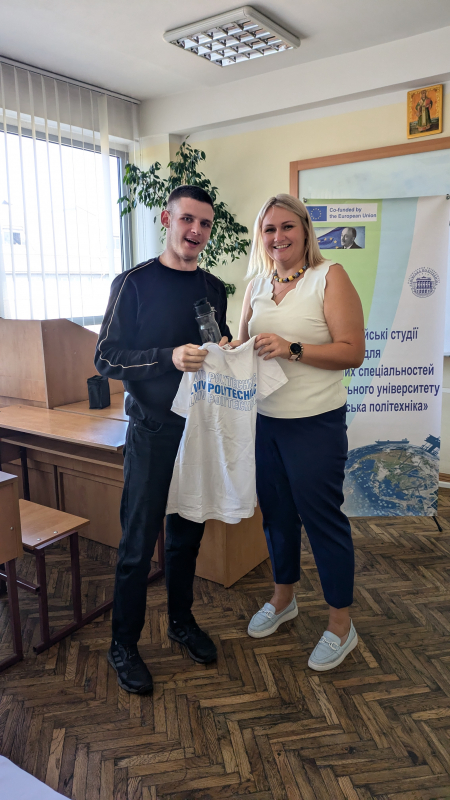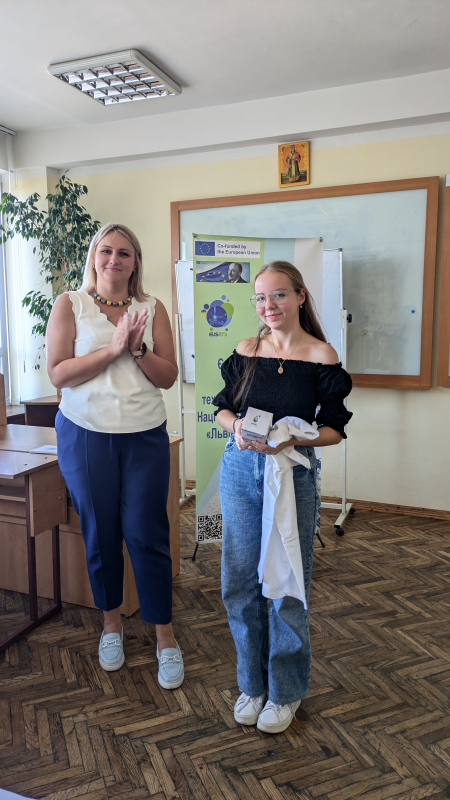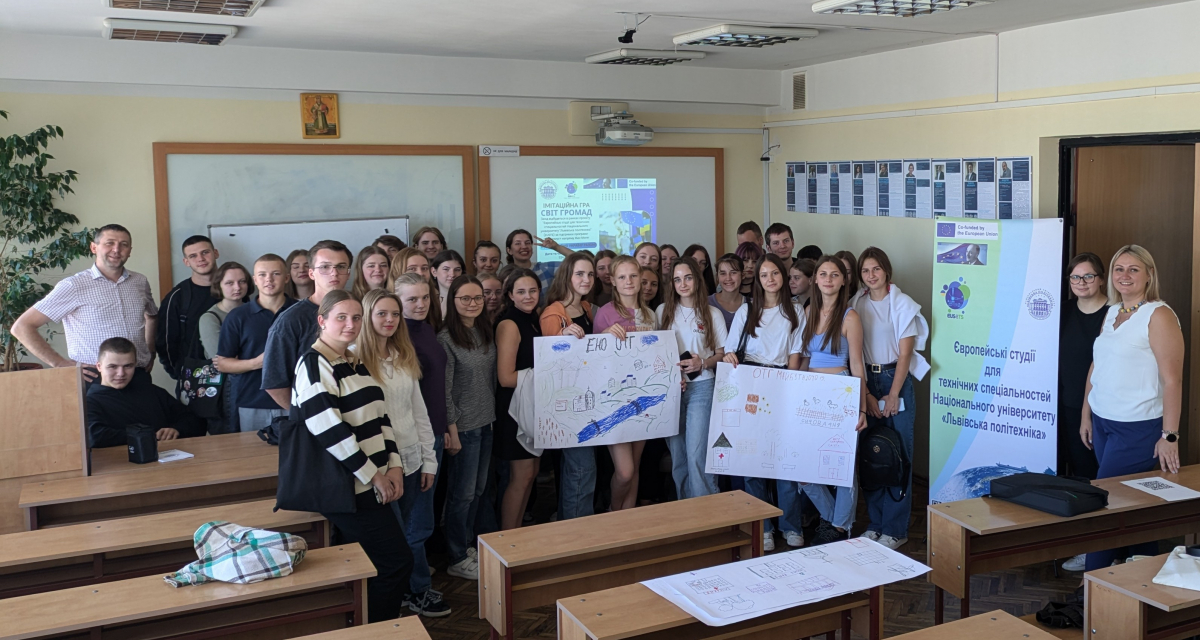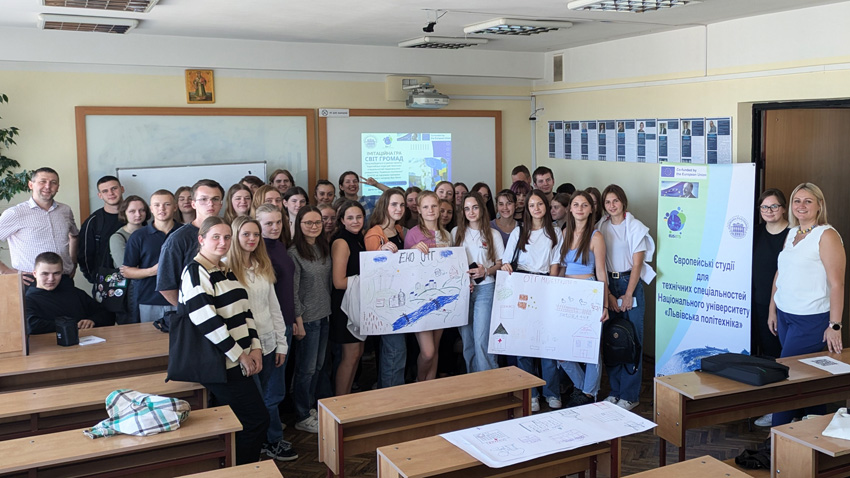On September 24, 2024, the team of the European Studies for Technical Specialties at Lviv Polytechnic National University (EUSTS) project organized an interactive event “World of Communities”. The event was attended by 58 people, including 49 students and 9 university lecturers.
The event began with a speech by Nataliia Vovk, Associate Professor of the Department of Social Communications and Information Activities, EUSTS project participant, who presented the decentralization process in Ukraine in detail and emphasized the importance of European Union instruments that are already being actively used for the development of local communities. The speaker emphasized the importance of the European integration course and the possibilities of using EU programs in the fields of education, culture, infrastructure, and local government.
After the theoretical part, the participants were divided into six teams, each of which worked on modeling their own community within the World of Communities game.
The participants' tasks were to create development strategies for their communities, taking into account the priorities of the decentralization reform and the European integration course. Students chose strategies for attracting investment, developing local infrastructure, improving social services, and environmental sustainability. They analyzed the needs of their communities and made decisions on how to optimally use resources to ensure sustainable growth.
The teams also explored opportunities offered by European support programs. Participants actively sought ways to attract international grants and partnerships to finance community development projects. One of the key topics was the issue of community cooperation with international organizations to improve education, healthcare, and infrastructure.
Each group presented their community as an active participant in European processes, with the focus on integrating European values and standards into local governance. As a result, all participants emphasized that successful community development depends on the ability to cooperate, adaptation of the best European practices, and effective use of the opportunities provided.
At the end of the event, the participants had the opportunity to test their knowledge during a quiz, which was not only the final part, but also a kind of summary of the skills and information they had acquired. The quiz questions covered key aspects of decentralization in Ukraine, the role of the European Union in supporting reforms, and the opportunities offered by European programs for local communities. Special attention was paid to programs aimed at developing infrastructure, education, social services and the environment.
The World of Communities simulation game, as well as other events organized by the EUSTS project team, is an important step in deepening the understanding of the role of European programs in the development of Ukrainian communities.
The simulation game was also attended by members of the EUSTS project team: Yaryna Turchyn, Director of the Institute of Humanities and Social Sciences, Oleksandr Markovets, Head of the Social Communications and Information Activity Department, Olha Ivasechko, Iryna Sukhorolska, Oleh Tsebenko, Olena Lukachuk, Associate Professors of the Political Science and International Relations Department, Lidiia Kasha, Associate Professor of the Electromechatronics and Computerized Electromechanical Systems Department of the Institute of Energy and Control Systems.
The project team sincerely thanks all the students and academics staff who took part in this event and will continue to work on preparing other equally interesting events on relevant topics of Ukraine's European integration.
